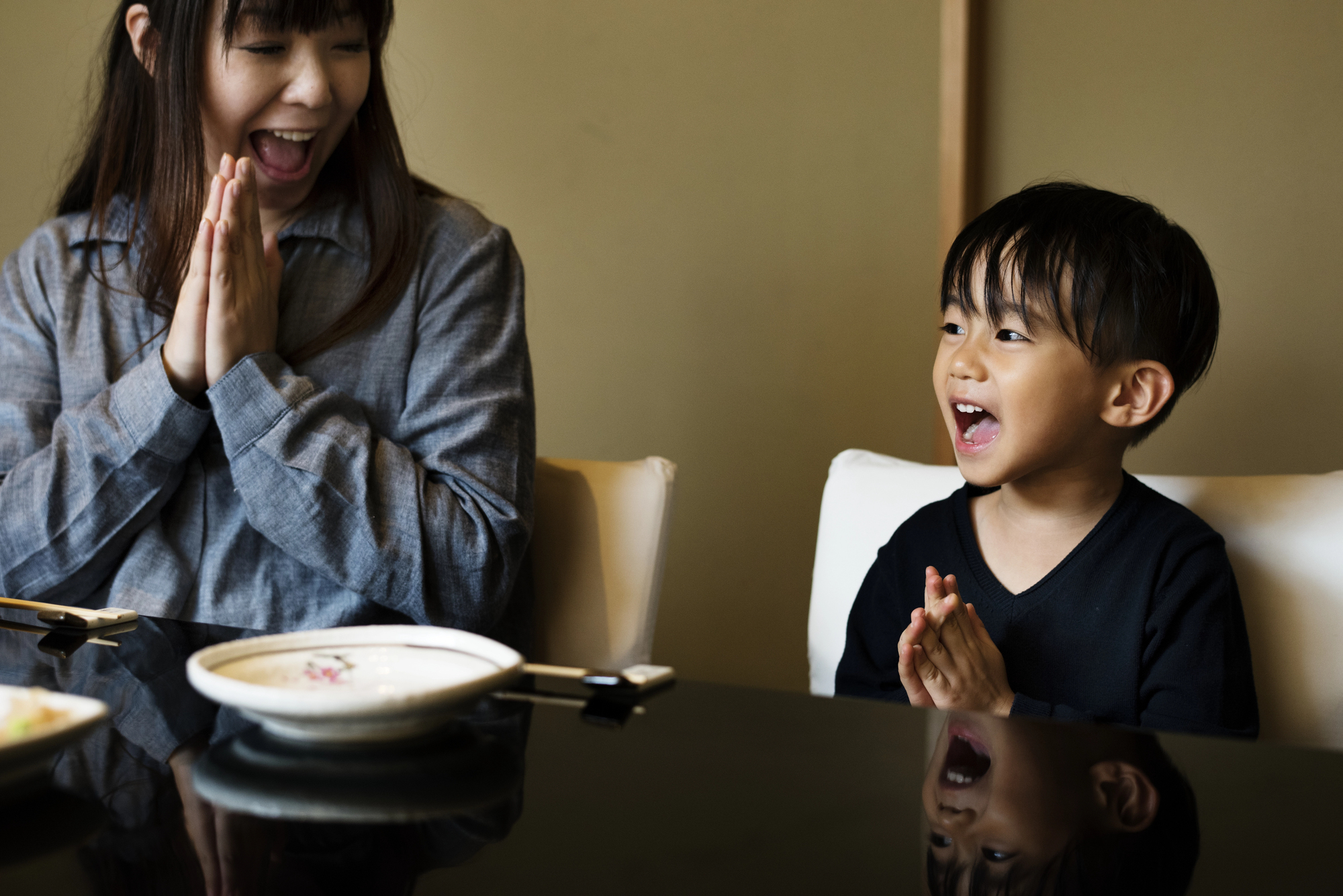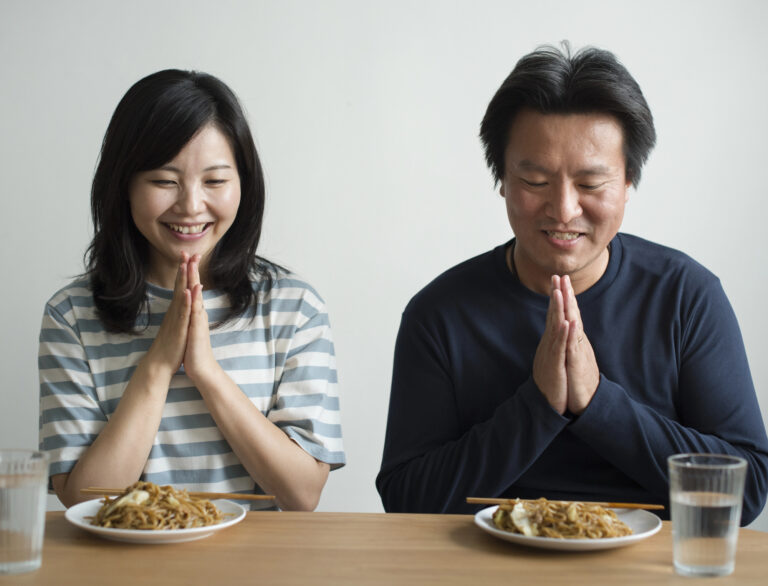If you have ever been exposed to Japanese culture, whether it be spending time with Japanese friends or enjoying an anime or drama, you will have likely heard the phrases itadakimasu and gochisousama.
If you pay particular attention, you will notice that these terms are always reserved for meal time! This is a really beautiful Japanese tradition that is used to give appreciation for the food in front of you.
If you are wondering how to say ‘thank you for the food’ in Japanese, ‘thank you for the meal’, or even ‘bon appétit’, read on to learn how to use these phrases in Japanese.
Itadakimasu
いただきます
I humbly receive (this food)
You may recognise itadakimasu (頂きます / いただきます) as being the humble, kenjougo, term to mean ‘to receive’.
Before enjoying your meal, it is customary to put your hands together in prayer-like form, perform a slight bow and say itadakimasu, which is a similar sentiment to ‘thank you for this meal’.

Itadakimasu literally means something like ‘I humbly receive’. While this phrase might sound a bit odd in English, it’s simply a respectful way to express gratitude.
Other cultures have similar customs such as joining hands and saying grace before a meal in Christian households, or the French term ‘bon appétit’!
The former thanks God for the food, while the latter is generally uttered by the person who cooked the food, encouraging the recipient to ‘have a good appetite’ and savour the meal.
In contrast, the Japanese term itadakimasu is said by the person eating the food.
It can express gratitude to the chef, the farmers who cultivated the ingredients and even the more abstract concept of having the privilege of having food in front of you.
Gochisousama (deshita)
ご馳走様(でした)
Thank you for the meal
After finishing a meal, it is then tradition to express thanks for the meal with the phrase gochisousama (ご馳走様 / ごちそうさま). You can also use the phrase gochisousama deshita to be extra polite.
The phrase gochisousama is used to give thanks for the effort put into the meal you just ate. You can express this thanks to the person who cooked your meal, whether it be home-cooked or in a restaurant.
You can also say gochisousama deshita to the waiters while settling the bill or on the way out of the restaurant.

Osomatsusama deshita
お粗末さまでした
Sorry for the ill-prepared food
Osomatsusama deshita (お粗末さまでした / おそまつさまでした) is a common utterance made by the food preparer in response to gochisousama.
Its translation of ‘sorry for the ill-prepared food’ might seem a little funny, but it is common in Japanese kenjougo (humble speech) to speak down on your own actions in order to raise the other person up.
Another example of this is when receiving a gift from a Japanese person, they may say tsumaranai mono desu ga… (つまらないものですが) which literally translates as ‘it’s an uninteresting / insignificant gift but…’.
It is similar to how we would say in English: ‘it’s just something small’ while offering a gift to someone.
Let’s be thankful!
If you are planning a trip to or living in Japan, these phrases are a great way not only to show appreciation for the food you are chowing down on, but also for the traditions and customs of the country and its people.
These phrases, though short and simple, express a great deal of respect and would surely put a smile on someone’s face to hear it from visitors from all around the world!
Not only does it honour the Japanese tradition, it is also great in a personal sense. Eating a meal is one of those mundane things we do each day, but it is completely essential for our health.
Showing gratitude at any chance you get can help us feel happier by being able to relish something that we may have come to take for granted.
Want to learn more practical, everyday Japanese? Our top recommended course is JapanesePod101. Try it – it’s free!
JapanesePod101 is our top recommendation to learn Japanese online. We love the fun, current audio lessons and interactive online tools. Sign up for your free lifetime account and see for yourself!
Related posts
- 65+ Japanese Food Words to Make You Hungry
- Did You Know These Japanese Food Etiquette Rules?
- Top Useful Japanese Restaurant Phrases and Vocabulary
- How to Say Cheers in Japanese (Kanpai and More!)
📌Pin this for later

Hannah is a half Irish/half Japanese girl living in Ireland. Her love for Japan and the Japanese language led her to studying languages and translation in university where she specialised in Japanese. She spent a year studying abroad at Rikkyo University in Tokyo. In her free time, Hannah enjoys using her sewing machine to upcycle clothes and create new pieces!

